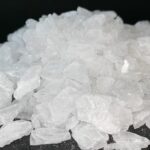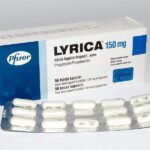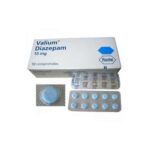Testosterone: Uses, Side Effects, Abuse, Addiction

Testosterone is a medication and naturally occurring steroid hormone, it is the primary sex hormone in men, and it is responsible for the development of many of the physical characteristics that are considered typically male (such as deep voice, hair growth, increased bone density, and many others). Testosterone, part of a hormone class known as androgens, is produced by the testicles after stimulation from the pituitary gland, which is located near the base of the brain, and sends signals to a male’s testicles that spark feelings of sexual desire. Testosterone is a schedule III controlled substance.
Testosterone was first isolated in 1935, and approved for medical use in 1939. Rates of use have increased three times in the United States between 2001 and 2011. It is on the World Health Organization’s List of Essential Medicines, the safest and most effective medicines needed in a health system. It is available as a generic medication. In 2018, it was the 124th most commonly prescribed medication in the United States, with more than 5 million prescriptions.
Testosterone is used primarily to treat symptoms of sexual dysfunction in men and women and hot flashes in women. Potential benefits include improved libido, increased bone mass, and increased sense of well-being. While testosterone may be used to treat women, low levels of testosterone (also known as low T or hypogonadism) is considered a male problem, according to a review published in October 2019 in The Lancet Diabetes and Endocrinology.
The Perils of Too Much Testosterone
Having too much naturally-occurring testosterone is not a common problem among men. That may surprise you given what people might consider obvious evidence of testosterone excess: road rage, fighting among fathers at Little League games and sexual promiscuity.
Part of this may be due to the difficulty defining “normal” testosterone levels and “normal” behavior. Blood levels of testosterone vary dramatically over time and even during the course of a day. In addition, what may seem like a symptom of testosterone excess (see below) may actually be unrelated to this hormone.
In fact, most of what we know about abnormally high testosterone levels in men comes from athletes who use anabolic steroids, testosterone or related hormones to increase muscle mass and athletic performance.
Problems associated with abnormally high testosterone levels in men include:
- Low sperm counts, shrinking of the testicles and impotence (seems odd, doesn’t it?)
- Heart muscle damage and increased risk of heart attack
- Prostate enlargement with difficulty urinating
- Liver disease
- Acne
- Fluid retention with swelling of the legs and feet
- Weight gain, perhaps related in part to increased appetite
- High blood pressure and cholesterol
- Insomnia
- Headaches
- Increased muscle mass
- Increased risk of blood clots
- Stunted growth in adolescents
- Uncharacteristically aggressive behavior (although not well studied or clearly proven)
- Mood swings, euphoria, irritability, impaired judgment, delusions
Among women, perhaps the most common cause of a high testosterone level is polycystic ovary syndrome (PCOS). This disease is common. It affects 6% to 10% of premenopausal women.
The ovaries of women with PCOS contain multiple cysts. Symptoms include irregular periods, reduced fertility, excess or coarse hair on the face, extremities, trunk and pubic area, male-pattern baldness, darkened, thick skin, weight gain, depression and anxiety. One treatment available for many of these problems is spironolactone, a diuretic (water pill) that blocks the action of male sex hormones.
Women with high testosterone levels, due to either disease or drug use, may experience a decrease in breast size and deepening of the voice, in addition to many of the problems men may have.
Too Little Testosterone
In recent years, researchers (and pharmaceutical companies) have focused on the effects of testosterone deficiency, especially among men. In fact, as men age, testosterone levels drop very gradually, about 1% to 2% each year — unlike the relatively rapid drop in estrogen that causes menopause. The testes produces less testosterone, there are fewer signals from the pituitary telling the testes to make testosterone, and a protein (called sex hormone binding globulin (SHBG) increases with age. All of this reduces the active (free) form of testosterone in the body. More than a third of men over age 45 may have reduced levels of testosterone than might be considered normal (though, as mentioned, defining optimal levels of testosterone is tricky and somewhat controversial).
Symptoms of testosterone deficiency in adult men include:
- Reduced body and facial hair
- Loss of muscle mass
- Low libido, impotence, small testicles, reduced sperm count and infertility
- Increased breast size
- Hot flashes
- Irritability, poor concentration and depression
- Loss of body hair
- Brittle bones and an increased risk of fracture
Some men who have a testosterone deficiency have symptoms or conditions related to their low testosterone that will improve when they take testosterone replacement. For example, a man with osteoporosis and low testosterone can increase bone strength and reduce his fracture risk with testosterone replacement.
As surprising as it may be, women can also be bothered by symptoms of testosterone deficiency. For example, disease in the pituitary gland may lead to reduced testosterone production from the adrenal glands disease. They may experience low libido, reduced bone strength, poor concentration or depression.




